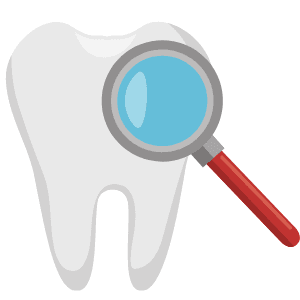Dental Abnormalities

The most common oral problems seen in individuals with Down syndrome are:
- Delayed eruption
- Extra or missing teeth
- Malformed size and shape of teeth
- Malocclusion (overbite/crossbite)
- Periodontal disease (gum disease)
- Teeth grinding
- Macroglossia (large tongue)
- Gingival hyperplasia (overgrowth of your gums)
- Fissured tongue and lips (cracks and grooves on the tongue and lips)
Periodontal disease is an infection around the teeth and gums that support the teeth. Individuals with Down syndrome are at an increased risk for periodontal disease (gum disease) (Scalioni, 2018). This can result from contributing factors such as an impaired immune system, malformed dentition, and lack of dental hygiene.
Ways to prevent periodontal disease:
- Brush two times a day – a mechanical toothbrush may be beneficial due to the intellectual impairment and manual dexterity problems seen in individuals with Down syndrome.
- Brush with the toothbrush bristles at a 45-degree angle along the gum line.
- Floss daily – Floss holders and floss picks can be helpful aids.
- Visit the dentist every six months or even sooner depending on the person's oral health status.
*It is important for caregivers to understand that if the individual with Down syndrome's gums bleed and are inflamed, they should not stop brushing and flossing. It is important to maintain good brushing and flossing habits, and that will help minimize bleeding and inflammation.









